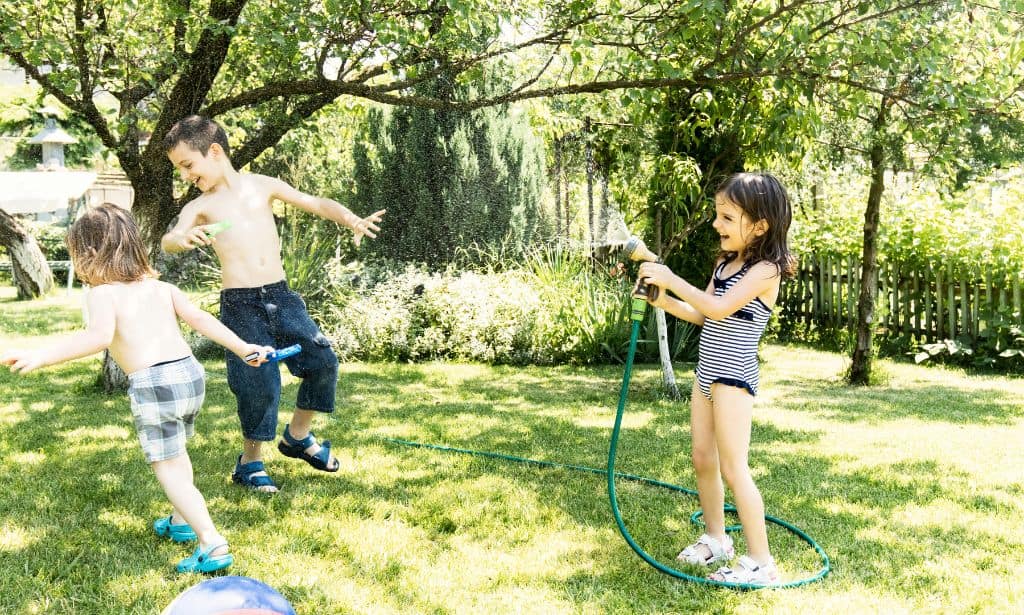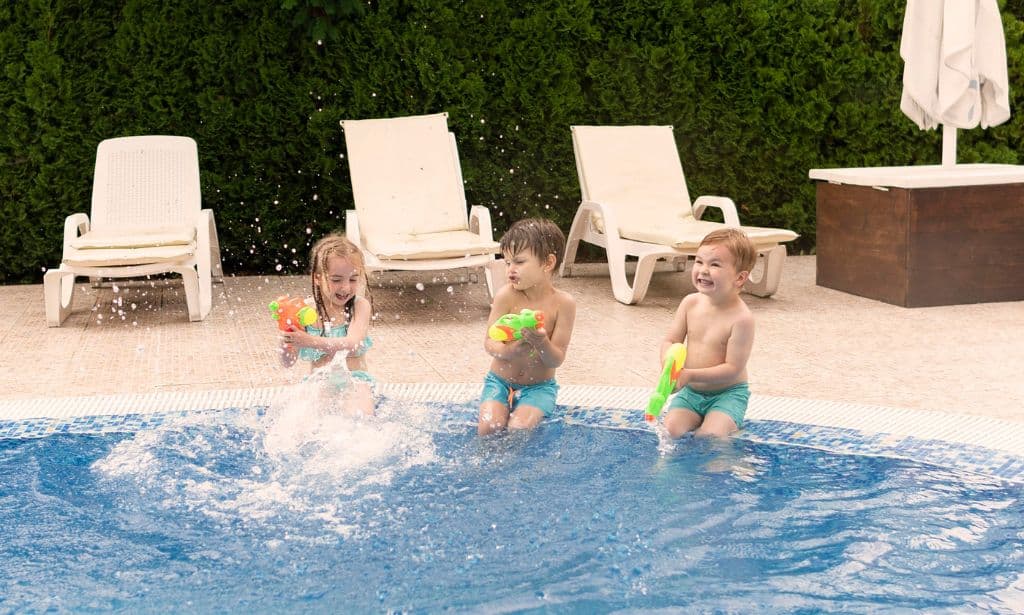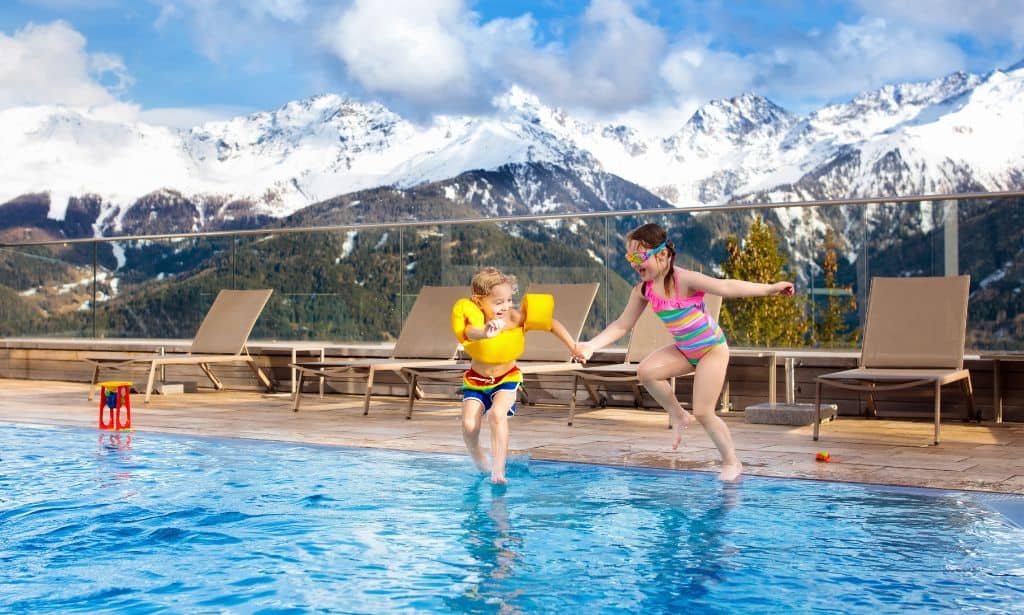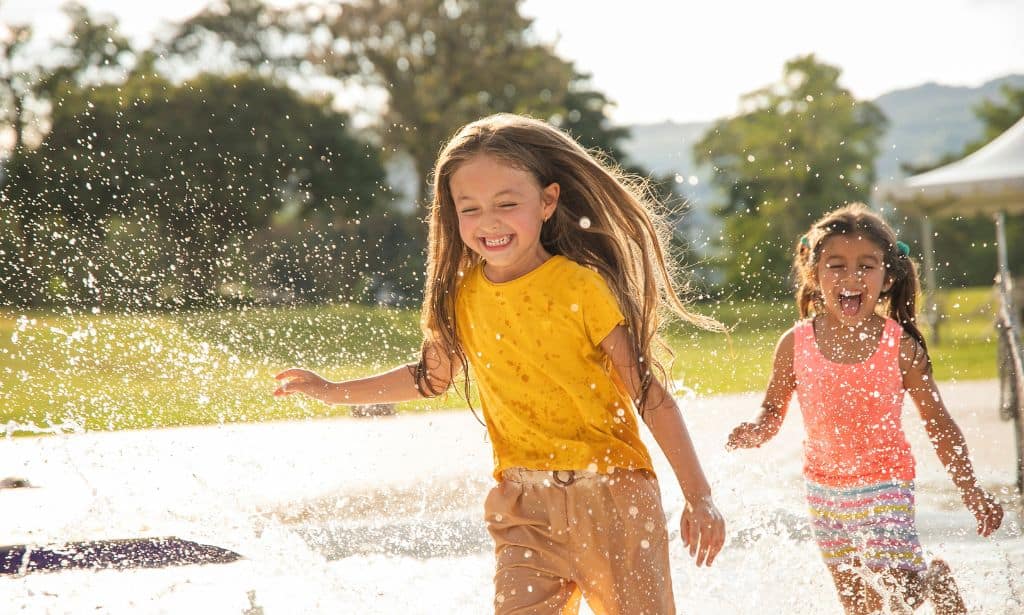Kids enjoy playing in the water. They’ll jump in muddy puddles, fight for more shower time, and enjoy beach days to the fullest. In fact, water play is definitely one of their favorite types of play. After all, they spend nine months surrounded by a liquid in mommy’s belly.
Water play is a sensory type of play. It focuses on stimulating and engaging your child’s senses, including touch, hearing, and sight. Water play also stimulates a kid’s motor skills and cognitive development.
Generally, sensory play is vital to your child’s overall development. However, it helps if you combine different types of play to ensure the child’s all-around development. Below are the different types of play that contribute to a child’s development.
- Physical Play: It involves a lot of body movements, such as dancing, jumping, and ball games. Physical play focuses on building muscles, strengthening bones, and enhancing gross motor skills.
- Nature Play: Kids explore nature in games like bird watching, identifying plants and leaves, watching works in the soil, and completing simple hiking activities. Nature play gives them an in-depth understanding of the earth and teaches them about responsibility.
- Fantasy Play: The kids apply their imagination to the games in fantasy play. For example, they’ll use their imagination to bake a cake or complete a painting. This play focuses on cognitive development, improves creativity, and enhances communication skills.
- Constructive Play: If your kids love experimenting, they’ll enjoy constructive play. This play involves a lot of drawing, building, creating music, and arts and crafts. Constructive play factors in gross motor skills, creativity, and communication.
- Social Play: Social play involves age-appropriate games encouraging interactions with other kids. For example, playing on the playgrounds, visiting indoor gaming parks, or playing with friends at home. Social play improves communication and social skills, teaches cooperation, and builds your child’s confidence.

What is Water Play?
As the name suggests, water play is a type of play that involves kids playing in the water. Usually, the kids use their water toys, buckets, clay, sand, and other creative items for the full experience. For example, the kids will build sand castles, paint, create molds, and blow bubbles.
The Benefits of Water Play
As mentioned above, water play is a sensory type of play that stimulates most of your child’s senses. However, there are additional benefits to allowing your child access to different water play activities. Here are the top 7 benefits.
1. It Improves Hand-Eye Coordination
As mentioned earlier, water play facilitates the development of fine and gross motor skills, and hand-eye coordination is one of the primary motor developments. For example, kids will use their hands and eyes to pour, stir, measure, or paint during water play. These activities ensure they learn to control their hand movements and focus their eyesight.
2. It Enhances Your Kid’s Concentration
Naturally, kids aren’t born with the ability to concentrate for hours. Instead, their attention span develops over time. Brain Balance Center states that the attention span of a two-year-old lasts four to six minutes, while that of a four-year-old lasts 8-12 minutes.
However, you’ll notice that kids concentrate for hours during water play. This prolonged attention span improves their concentration, which trickles into their school work and other areas.
3. Kids Learn Mathematical and Science Concepts
Mathematical and science concepts thrive in water play. The kids measure water in containers, balance the weight, and perform floating or sinking experiments. They’ll also learn about liquids, vapor, and gases or why water makes soil heavy.
Water play allows you to teach your kids about numbers, counting concepts, measurements, and scientific experiments. This knowledge will prepare them for success in formal learning.

4. It Improves Social Skills
You can also categorize water play under social play because it builds your child’s social-emotional and communication skills. Although kids can play alone, they enjoy water games better when playing with other kids.
The water games encourage children to cooperate and communicate, which enhances their social skills. Kids also develop confidence and learn important problem-solving skills to achieve a common goal.
My younger kid is slowly outgrowing water play, but going to water parks and playing with her sister contributed heavily to her confidence. Nowadays, she leads class presentations without fear and has no problem engaging other kids in conversations.
5. It Encourages Language Development
Water play ignites many conversations between you and the kids or their friends. That’s an opportunity for language development because the kids learn about sentence formations and add new words to their vocabulary.
For example, they’ll learn the meaning of water play or name all the tools they use during playtime. Some of the new words I always emphasized include flow, squeezing, measure, buckets, basins, damp, and pour; the list is endless.
6. It Teaches Patience
Water is powerful and known to have a positive effect on your psychological well-being. According to an article on Guideposts, water directly impacts the neurotransmitters that affect your mood, making you calmer.
In other words, encouraging your kids to engage in water play will relieve tension and instill patience. For example, if you’re dealing with continuous tantrums, try bringing out buckets and water toys.
Playing under flowing water will ease their stress. Likewise, splashing water and running their hands through running water can do the trick.
7. It Ignites the Kid’s Creativity
Water play ignites kids’ creativity because they’ll develop many water game ideas. There are so many fun water games for kids, and they’ll figure it out once you provide the environment.
For example, they’ll create bubbles from dishwashing soap and water, mix paints and design drawings, or use food coloring to create colored ice. Kids have wild imaginations, and encouraging this type of play allows them to tap into that creativity.

Precautions You Should Take for Safe Water Play
Water is calming and ignites your baby’s creativity but it can also be dangerous. Therefore, before you let the kids explore different water game ideas, here are a few precautions.
1. Supervise the Kids Closely
It’s important to monitor your kids as they play, especially if it’s a large mass of water. For example, your young kids cannot engage in unsupervised play in a bathtub, swimming pool, or beach. Always stay close or join them so that you can prevent emergencies.
Alternatively, create simple play stations in the backyard with minimal water supply. For example, one basin or bucket of water that you’ll refill from time to time. It would help if you also gave them water safety lessons, indicating the dos and don’ts, so they play responsibly.
2. Learn CPR
CPR is a must-learn for all parents. These lessons will help you act fast in an emergency and relieve worry as your kids engage in water play. In addition, learn how to respond to water accidents, such as drowning, and master first aid tips that are effective for general playtime injuries.
Apart from CPR, you should also invest in water safety equipment, such as fences, pool covers, float lines, and alarms. That way, your kids will learn their limits, and you’ll have a safety backup in case of an accident.
3. Practice Good Hygiene
Water games are generally messy, but it’s important to practice good hygiene. Let your kids play in areas where you don’t mind getting dirty, and encourage them to refrain from drinking dirty water. They can jump in muddy puddles all day long as long as they don’t drink the water.
I always lay out play areas in the backyard because I don’t have to worry about cleaning up after them. Additionally, they’ll only wear clothes that are easy to clean or disposable.
Water play is highly beneficial for your child’s overall development. This article emphasizes that they’ll learn to communicate, socialize, and solve problems. But most importantly, it is a sensory type of play that stimulates all the vital senses.




